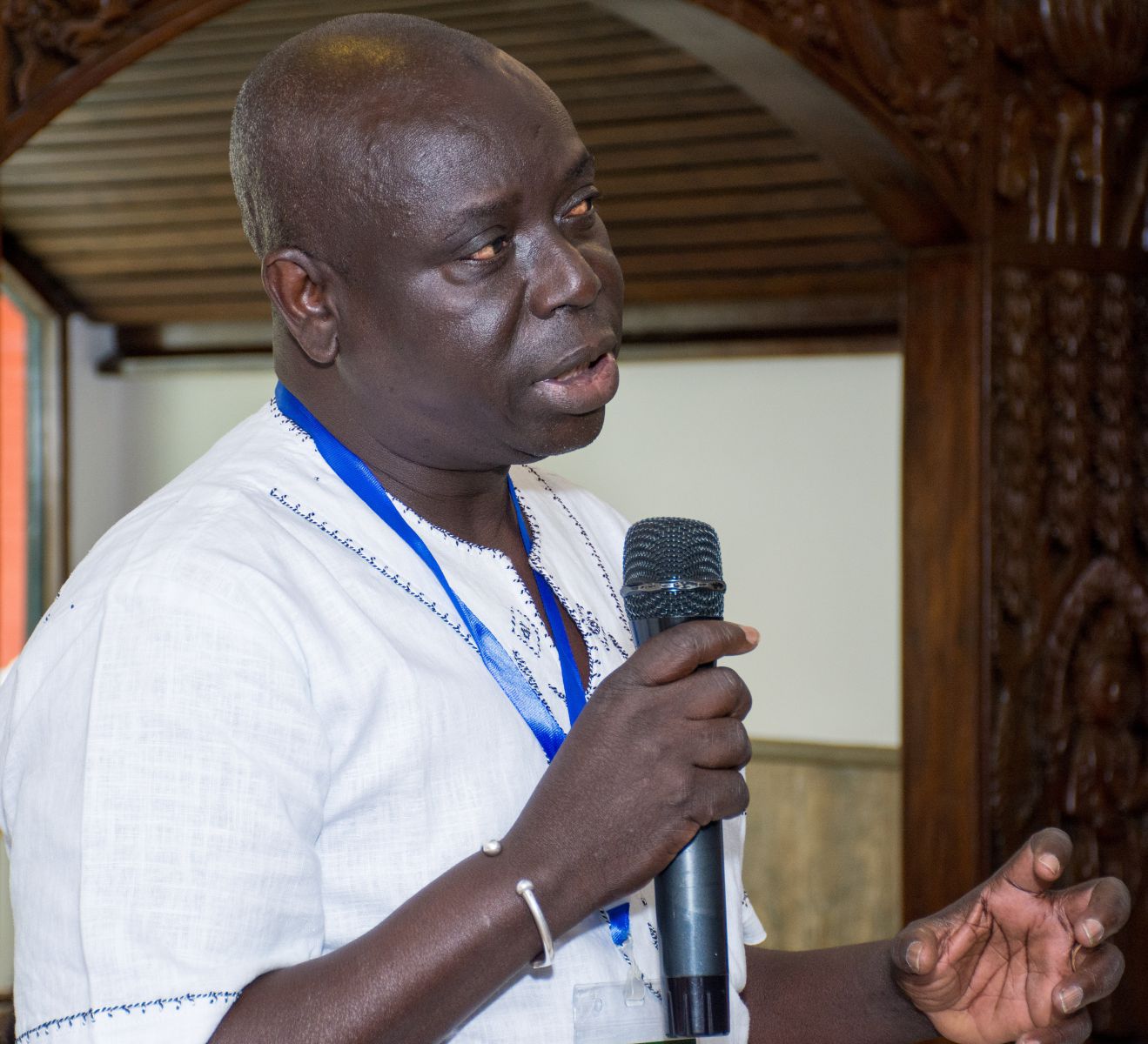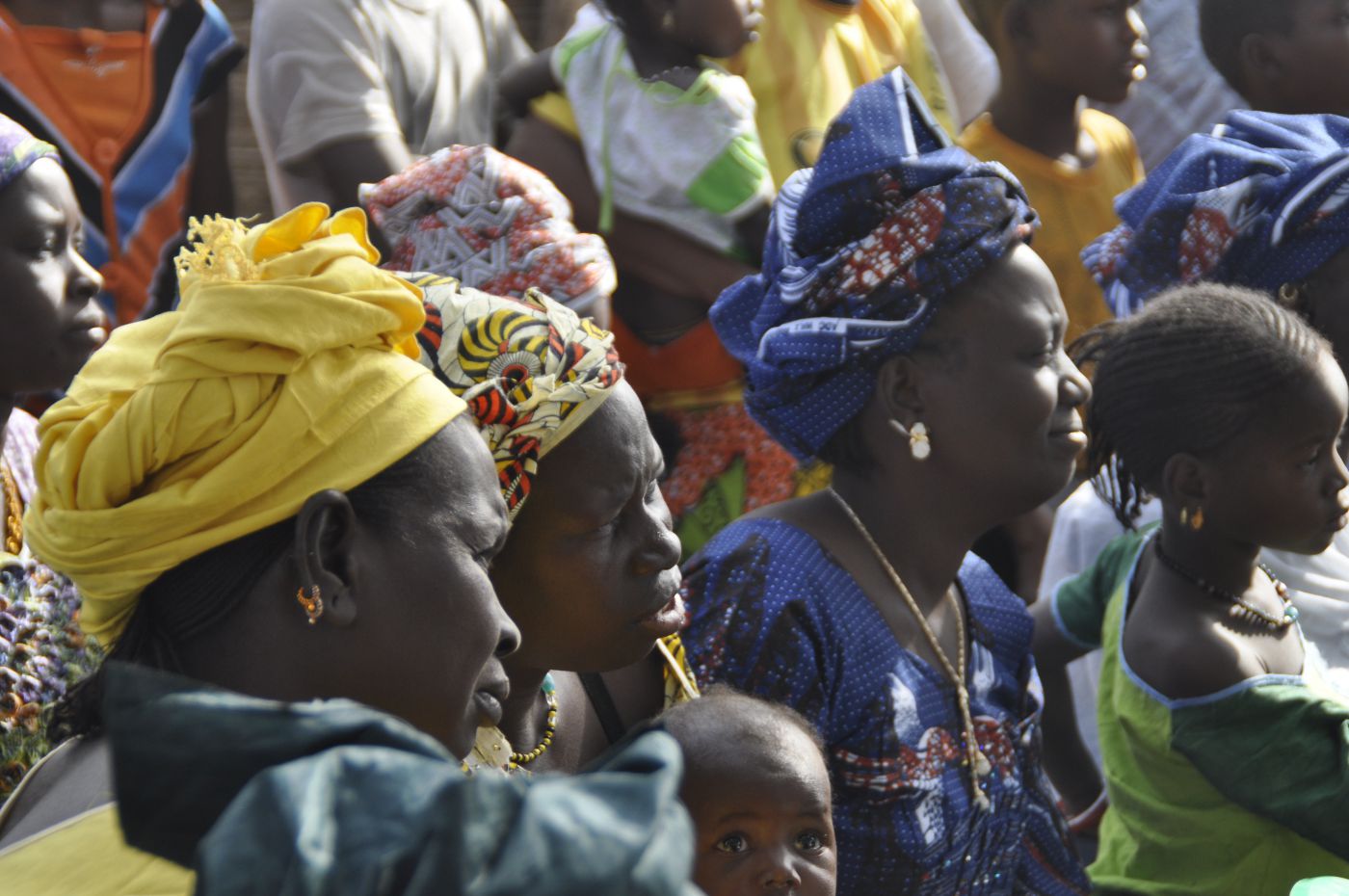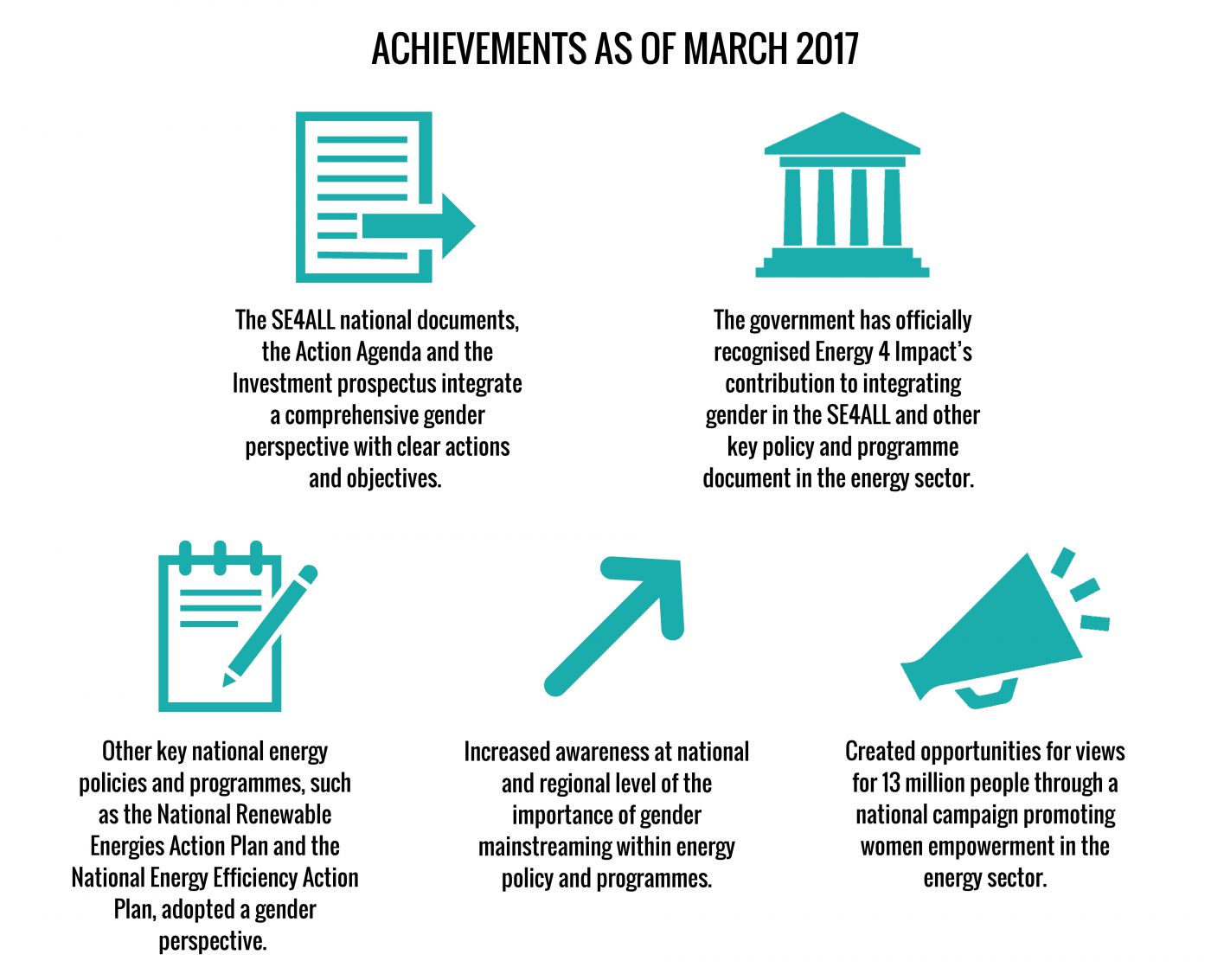At the outset of the ENERGIA sponsored advocacy project in Senegal, Energy 4 Impact reported that energy laws and regulatory and policy documents did not take gender into account. Instead, generic expressions such as “access to modern forms of energy and electricity in rural areas”, “energy access for all” or “vulnerable persons” appeared in those texts. By the end of 2015, only six months into the project, our partner in Senegal noted some significant improvements.
Energy sector stakeholders have started showing signs of recognizing the importance of gender, thanks to Energy 4 Impact’s participation at key meetings, conferences and workshops, along with the broader advocacy and communications strategy.

“Our holistic approach was to gather a variety of bodies – amongst them government entities, the private sector, NGOs and universities – to jointly inform and push for the integration of specific gender actions and objectives in energy policies and programmes,” says Louis Seck, Energy 4 Impact Senegal Country and Project Manager. Case studies from the Women Economic Empowerment (WEE) project – funded by ENERGIA and implemented by Energy 4 Impact in Tambacounda – were used to showcase results and achievements when advocating for the integration of gender in energy projects. As a result of those efforts, all key documents related to SEforALL now include specific references to gender.
All key documents related to SEforALL now include specific references to gender.
In the SE4ALL Action Plan and Investment Prospectus led by the Ministry of Energy, a full section is dedicated to gender. This section covers various aspects, ranging from the implementation of gender-sensitive projects and programmes to designing a more gender informed policy. In addition, a specific Annex was dedicated to the WEE project. Energy 4 Impact is now following up on this to ensure gender is taken into account during the implementation phase.
Other SEforALL documents – the National Renewable Energies Action Plan (NREAP) and the National Energy Efficiency Action Plan (NEEAP) – mention principal objectives that are essential to ensure gender mainstreaming: (1) A general comprehension of gender and energy at all levels of society. (2) Inclusion of budget lines targeted at gender mainstreaming. (3) All programmes and policies on energy are non-discriminatory. (4) An increase in women’s involvement in all technical aspects related to energy, including decision-making roles. (5) Ensuring that women have as much opportunity as men to enter and succeed in energy related fields. (6) Implementation of a gender sensitive Monitoring and Evaluation system to ensure the above principles are implemented and measured.
Another cause for celebration is the fact that the Ministry of Energy has decided to elaborate a strategy for integrating gender in its energy policies and programs. The Ministry solicited Energy 4 Impact’s support in developing and implementing the strategy and action plan on gender and energy. Strategy development is ongoing, and both Energy 4 Impact and ENERGIA are looking into ways to support the Ministry in this effort.
Ministry of Energy has decided to elaborate a strategy for integrating gender in its energy policies and programs.
Yet, significant challenges remain and indicate the need for further advocacy activities. For instance, Energy 4 Impact noted the lack of coordination between the various actors in charge of the energy policies and programmes and SEforALL documents in Senegal. As a result, the SEforALL documents integrated gender, but some other important ones, such as the Emergency Rural Electrification Plan (EREP) did not.
To address this, Energy 4 Impact and the task force that had been established within the advocacy programme – with influential members from the public and private sector, civil society and academia – took part in the EREP validation workshop and provided written comments to the consultant that was hired by the World Bank to produce the document. In those comments, Energy 4 Impact pointed out issues such as the need for indicators to measure impact on improved electricity access on women’s life; the role women could play in accelerating access to electricity in rural areas in Senegal; and the lack of empowered gender focal points within the different agencies in Senegal that are involved in the energy sector. “Thanks to our joint effort the Senegalese Agency for Rural Electrification has integrated our observations related to gender in their programme, which is now awaiting final review from the World Bank,” says Louis Seck.
The Senegalese Agency for Rural Electrification has integrated E4I’s observations related to gender in their programme.
In 2017, ENERGIA will continue to support Energy 4 Impact’s gender advocacy. Some of the ongoing and planned activities include: supporting the Ministry of Energy in elaborating the above-mentioned strategy on gender and energy; supporting the national SEforAll focal point to develop a gender action plan and capacity building; various activities of the task force founded by Energy 4 Impact; developing communication materials to promote gender mainstreaming; and working with the Senegalese celebrity Coumba Gaolo Seck, whom Energy 4 Impact has engaged as a Women’s Economic Empowerment Ambassador.









